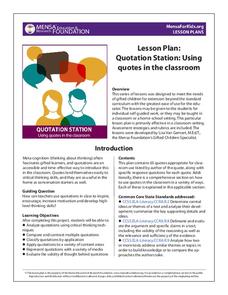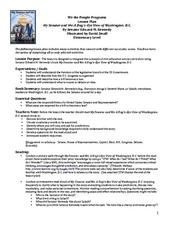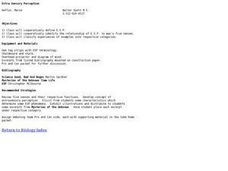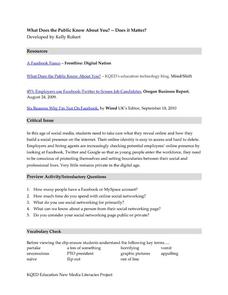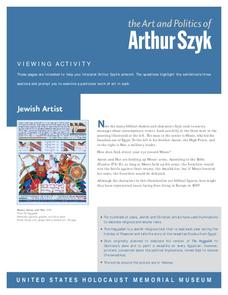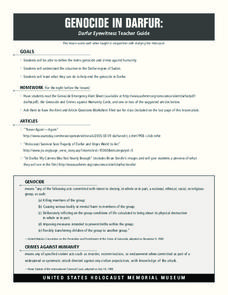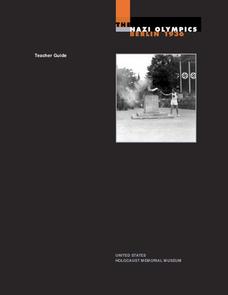Virginia Department of Education
Chemical Bonds
How are chemical bonds similar and how are they different? Provide your young chemists with the resources to more thoroughly understand the concepts of ionic and covalent bonds. Pupils research these topics, diagram examples of each...
MENSA Education & Research Foundation
Quotation Station: Using Quotes in the Classroom
An informative list compiled with quotes, authors, and discussion questions, along with 20 out-of-the-box application ideas, make up the collection of lessons geared to spark dialogue and creative thinking about quotations.
Curated OER
My Senator and Me: A Dog's-Eye View of Washington, D.C.
Although this legislative process lesson is designed to accompany a specific text, it is valuable independently. Young learners participate in a picture walk (worksheet included) through My Senator and Me: A Dog's-Eye View of Washington,...
Curated OER
Acids and Bases
In this acids and bases worksheet, young scholars review the characteristics of acids and bases, pK values, factors that change the rate of reactions, and catalysts. This worksheet has 17 multiple choice questions.
Curated OER
Science Discovery Lesson: Air is All Around Us
Students explore the concept that air is everywhere. They assess that it can't be seen, but is all around us. Each student becomes aware that air takes up space and listen to the book, "Air is All Around You," by Franklin M. Branley.
US Holocaust Museum
Time Capsule in a Milk Can
Imagine dumping out a milk can and finding letters from one of the darkest moments in history! Scholars use Holocaust Reading Passages and research to discover how people recorded and hid history during the events of World War II. They...
Curated OER
Extra Sensory Perception
Students define extra sensory perception. For this science lesson plan, students identify the relationship of E.S.P. to man's five senses and classify experiences of examples into respective categories.
US Holocaust Museum
Life in Shadows: Hidden Children and the Holocaust
Hiding in the filth of a sewer, as a child, to avoid capture by Nazi soldiers—sounds scary! Scholars investigate the youngest victims of the Holocaust, the children. They research video clips and written sources from the Holocaust...
Curated OER
M&M Mountain
Students practice recognizing the capital and lowercase M when practice writing with M&M's. They listen to and view the book, "Are You My Mother?," by P.D. Eastman with Random House, Inc. Each student interacts with a tongue twister...
Curated OER
Literal Meaning of Reading
Students practice basic reading skills. In this reading lesson plan, students review the letter M, read the story If You Give a Mouse a Muffin. Students will then write a book using their name, for example: If You Give a Taco to Tracy.
Curated OER
Literal Meaning of Reading
Students demonstrate literal meaning of a fiction book. In this reading comprehension lesson, students listen to the book, If You Give a Mouse a Muffin and practice the "m" sound during the read aloud. Students answer questions about the...
Baylor College
Magnifying and Observing Cells
Though it isn't a novel activity to prepare onion cell and Elodea plant cell slides as examples of cells in a microbiology unit, this resource will leave you thoroughly prepared. As pupils examine the slides that they prepare, they draw...
Baylor College
Pre-Assessment Activity: What Do You Know About Microbes?
In an introductory lesson plan, youngsters take a pre-assessment quiz, get a grasp of a gram of mass, and then estimate the mass of microorganisms that live within a human body. Using Glo Germ™, a material that allows you to simulate the...
Baylor College
Tools of Magnification
Life science learners need to be able to use a microscope. With this comprehensive resource, they first experience how lenses and magnification work, and then get familiar with using a compound microscope. Tremendous background...
Baylor College
Observing Different Microbes
Following directions from a colorful slide preparation card, beginning biologists examine three different live microorganisms: bacteria, yeast, and paramecia. This is not an unusual activity to do with your class, but if you are doing it...
Baylor College
Modeling Earth's Atmosphere
Life on Earth is made possible by the unique composition of its atmosphere. Working collaboratively, a scale model is created as young scientists learn about the different layers of gas that surround the planet. Cards are included that...
Purdue University
Healthy Body Image: A Lesson Plan for Middle School Students
This is a very valuable lesson for middle schoolers on the importance of maintaining a healthy body image through diet, exercise, and positive mentality. The resource includes four lesson plans. The first two plans outline the physical...
Scholastic
Prescription Pain Medication: What You Need to Know
The national epidemic of opioid addiction is making its way into high school populations. Educate the students in your class about the ways prescription opioids can both block pain and deliver large amounts of dopamine that make it very...
Curated OER
P.L.E.P: Parts of Blood
Students examine the different parts of blood. In this human blood lesson students work in groups and identify parts of blood and construct a model of human blood.
Curated OER
What Does the Public Know About You? --Does it Matter?
Young people today have to be very careful with how they present themselves online. Show them the possible impact of their online activity and what employers might see when performing a basic search. The lesson provides a video clip...
US Holocaust Museum
Remember the Children: Daniel’s Story
Imagine being a child forced from your home and into a concentration camp during World War II. Scholars prepare for a visit to the United States Holocaust Museum by researching the children of the horrible event. They analyze...
US Holocaust Museum
The Art and Politics of Arthur Szyk
Have you ever listened to a song that had a deeper political meaning to it? Every examined a work of art with layers of meaning? Pupils analyze the drawings of Arthur Szyk. They research the deeper meaning of several artistic cartoons...
US Holocaust Museum
Genocide in Darfur: Darfur Eyewitness Teacher Guide
The events of the Holocaust in World War II would never happen again, right? Scholars research the current genocide taking place in Darfur. Using video and Holocaust Reading Passages, they analyze the horror of this forgotten part of the...
US Holocaust Museum
Nazi Olympics: Berlin 1936
The Olympics are about more than sports—at times, the games are also a place of racism and prejudice! Pupils investigate the 1936 Olympics in Berlin, Germany. They analyze the meaning behind the materials included in the United States...



